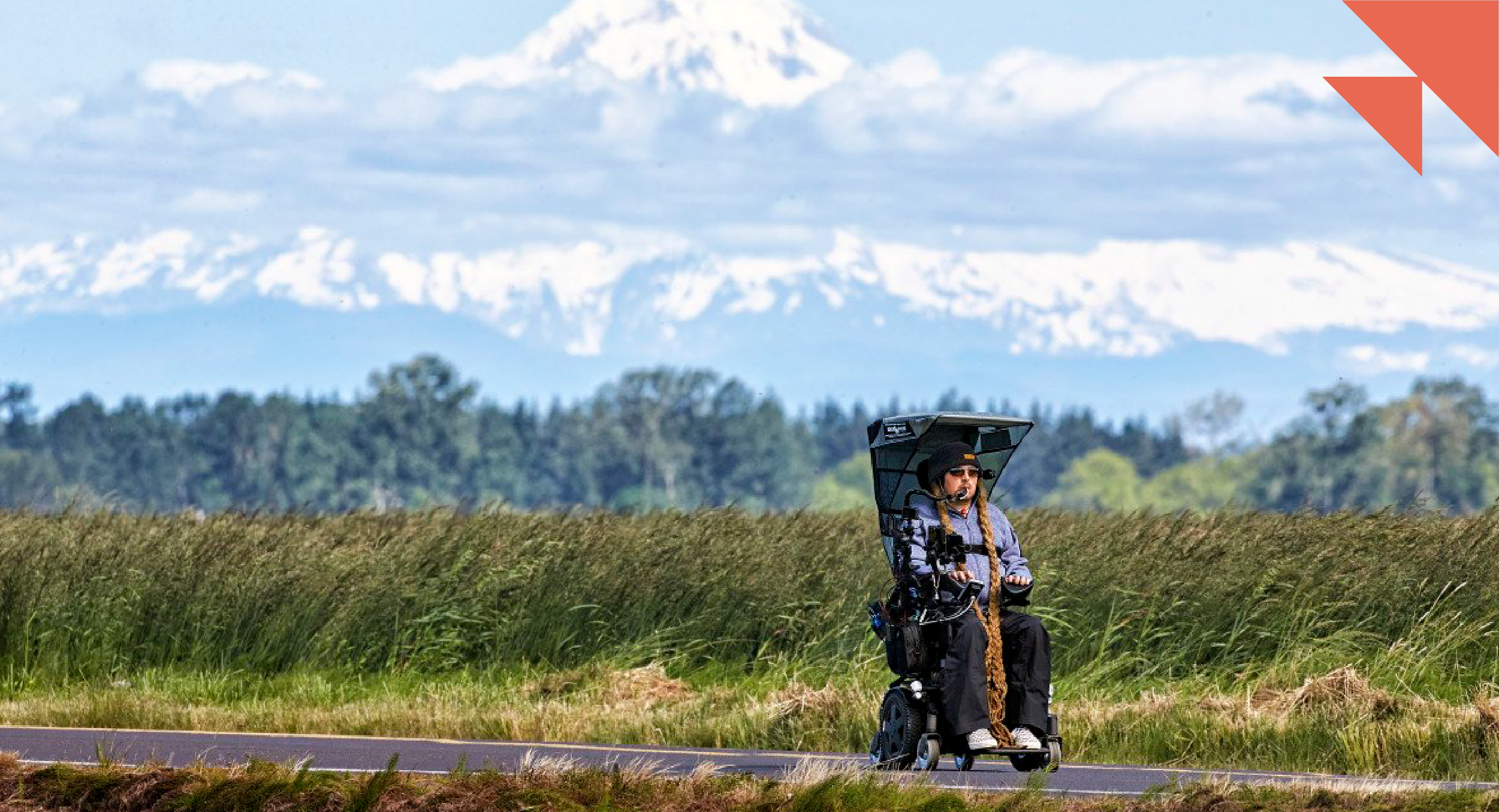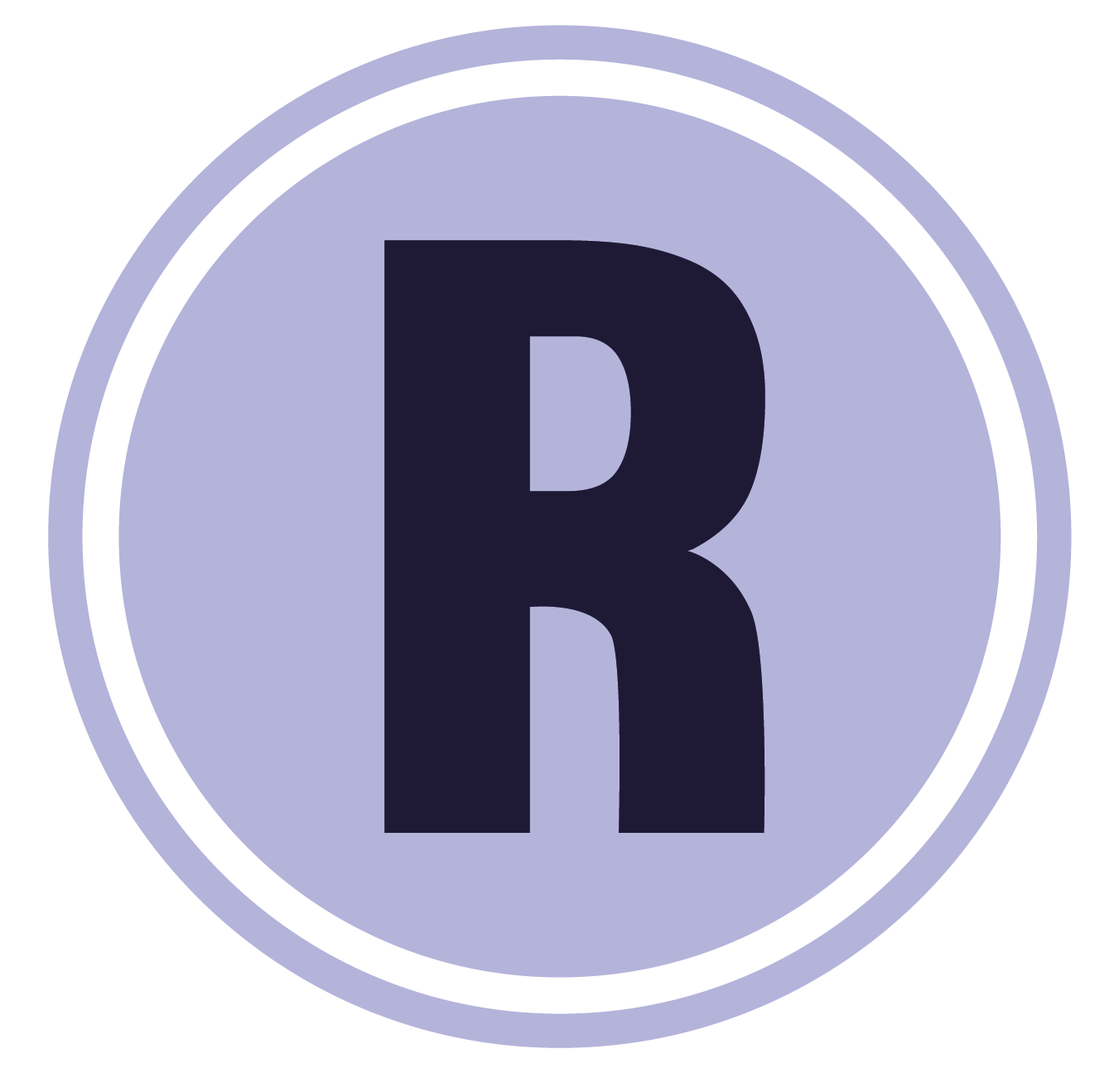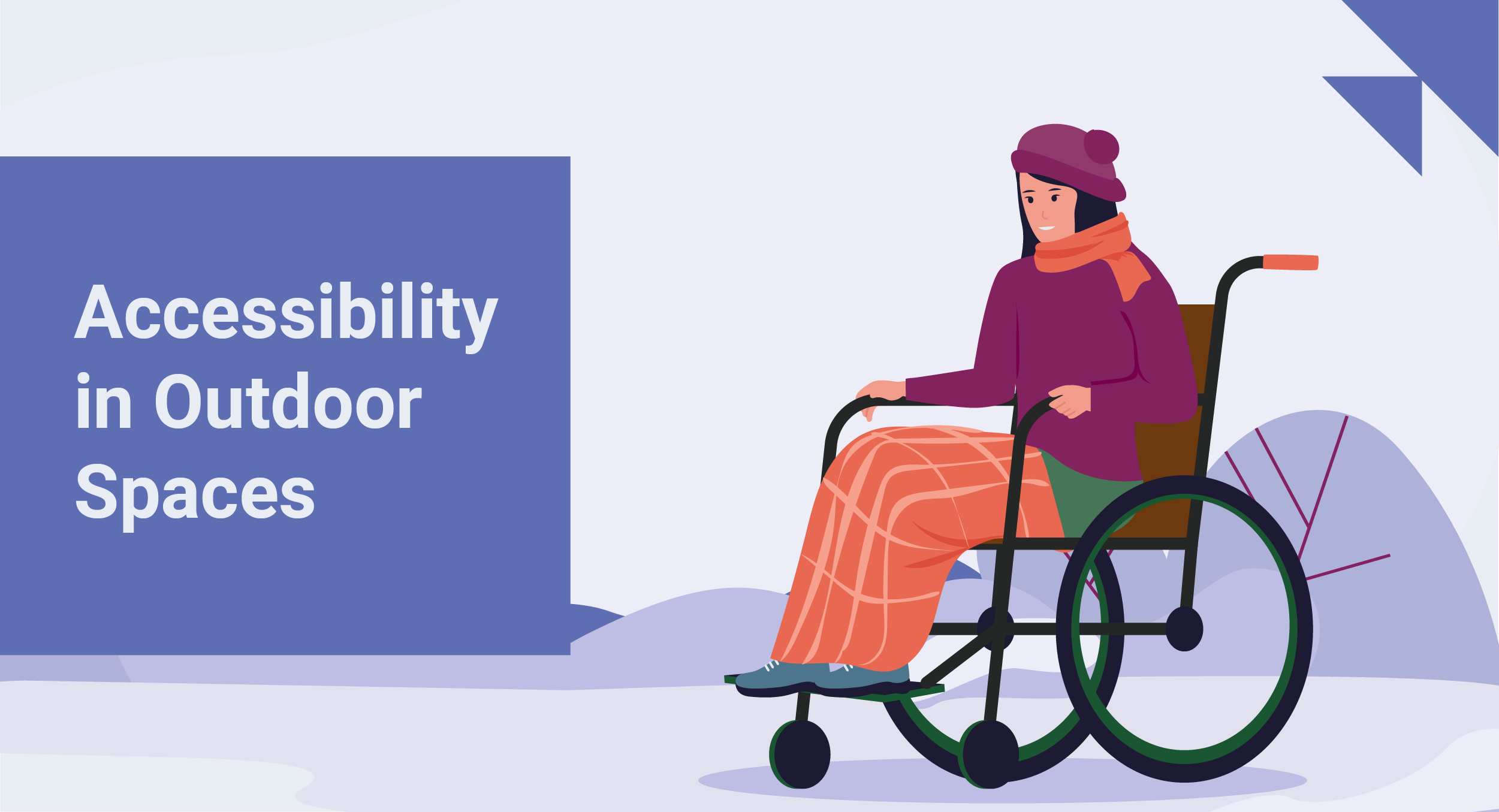Accessibility in Outdoor Spaces
People with disabilities often face barriers to getting outside, not just because of their “ability,” but because of factors like ableism and lack of...

 Relay Resources
:
Apr 25, 2024 9:00:00 AM
Relay Resources
:
Apr 25, 2024 9:00:00 AM
In honor of Celebrate Trails Day, hosted by the Rails to Trails Conservancy on April 27 nationwide, we want to highlight and celebrate the many ways in which trails and the outdoors have become more accessible in recent years.
Outdoor accessibility continues to be a pressing need—especially post-pandemic, when people are flocking to the outdoors more than ever. The Outdoor Industry Association notes that in 2022 outdoor recreation amongst people 6 and older grew 2.3% to a record 168 million participants—that’s 55% of the U.S. population!
The benefits of getting outside are tremendous. Being outdoors increases our mood, boosts our immune system, improves our breathing, and fosters sleep health. It also improves our overall emotional and mental wellness, and decreases depression and anxiety. Nature can actually heal us!
Unfortunately, the outdoors have not always been accessible to all. Many people face physical barriers to entry, or lack basic information on trail conditions. Relay Resources is committed to fostering a world where people with disabilities belong. The following three organizations are changing lives by making the great outdoors more accessible.
Ian Mackay, a lifelong outdoors enthusiast and cyclist, founded the organization Ian’s Ride after suffering a spinal cord injury that left him paralyzed from the neck down. Ian’s Ride promotes outdoor accessibility and encourages support services that foster outdoor recreation for people with mobility impairment. The group also advocates for the availability of accessible technology that makes the outdoors more accessible for people who use assistive devices.

Ian Mackay rides his wheelchair with a group of bicyclists behind hime while he sets a world record.
Photo Via Ian's Ride.
As Ian slowly rehabilitated after his accident, one day he realized that he was blocks from the Olympic Discovery Trail, a multi-use, non-motorized path open to bikers, runners, rollerbladers, and wheelchair users. He began traveling farther and farther down the trail, and found he could once again enjoy the sound of birds, the sight of mountains, and the wind against his face.
Ian found his true calling when he set out on an ambitious 335-mile wheelchair ride across Washington state in 2016. Much to his surprise, Ian was joined by other wheelchair users and cyclists from all over the country, who were eager to follow his journey and stand in solidarity with him.
Along the way, Ian’s story caught on like wildfire with the media as he raised awareness for accessible outdoor spaces, spreading the message that trails are not only for people without disabilities. He also continued to rack up accomplishments, including setting the Guiness World Record for longest distance covered in 24 hours by a mouth- controlled motorized wheelchair user—184 miles!—in June 2022.
Now in 2024, Ian’s Ride is continuing its mission; each year, the organization hosts Sea to Sound, a fundraising bike ride for people with and without disabilities. Participants traverse the entirety of the Olympic Discovery Trail, which covers 74 miles and takes three days to complete.
Watch Ian tell the story of his organization, discuss his love of trails, and more on his YouTube channel.
.jpg?width=251&height=334&name=peter-heymans-YaHbH49xOuc-unsplash_(1).jpg)
Georgena Moran, an avid outdoor enthusiast who lives in Portland, Ore., was diagnosed with multiple sclerosis when she was 40 years old. Determined to keep enjoying the outdoors while using her wheelchair, Georgena found it was difficult to find the info she needed to access trails. So she decided to do something about it: In partnership with Metro (a regional government agency of Portland) Georgena created the site Access Recreation, which provides useful trail information for disabled people.
Even a basic barricade like a log across a trail or a concrete barrier can render an area virtually uninhabitable for a person in a wheelchair or with other mobility challenges. That’s why Access Recreation includes information on signage, trail grade, public transit, amenities, and trail difficulty, as well as videos with additional information for regional trails in the Portland area.
Photo by Peter Heymans on Unsplash
Access Recreation’s goal isn’t to identify trails that are ADA-accessible per se, but “to share information about select trails of interest, as they are, so people with disabilities can make their own determination about whether to try a trail or not.”
For a list of “official” ADA designated accessible trails, check out this list made by Travel Oregon: https://www.travelportland.com/culture/accessible-trails/

Disabled Hikers is another organization on a mission to build a united disability community focused on justice and the outdoors. Since 2018, the organization’s founder, Syren Nagakyrie, has written guides for trails in Idaho, Oregon, Washington, giving people with disabilities information to help them access the outdoors. Nagakyrie says that those who need the healing powers of nature the most often face the greatest barriers of entry–information especially. Even people without disabilities need access to the most up to date information for trails, where misleading directions or confusing trail conditions can lead to danger quickly.
Disabled Hikers hosts virtual monthly meetings and hangouts for people with disabilities to attend. Nagakyrie also recently published the book, The Disabled Hiker’s Guide to Western Washington and Oregon, in 2022.
As more and more people seek access to the great outdoors, it is imperative that nonprofits, trail guides, organizations, and governmental agencies improve information, access, and accessibility for those with disabilities. Simple information and tools can go a long way toward creating safe environments so that people with and without disabilities can belong and enjoy our natural spaces. As Ian Mackay says, “being outdoors brought me joy that I couldn’t find elsewhere.”
Relay Resources offers employment and business solutions for and with people with disabilities; our mission is to cultivate meaningful work for people with disabilities. Learn more about what Relay Resources does here, along with how you can support inclusive workplaces or find employment.

People with disabilities often face barriers to getting outside, not just because of their “ability,” but because of factors like ableism and lack of...
.jpg)
In disability rights conversations, we often encounter the term “ableism,” which refers to discrimination, bias, or prejudice against people with...

The ability to vote is one of the most powerful and fundamental rights in a democracy, embodying the very essence of civic participation and...